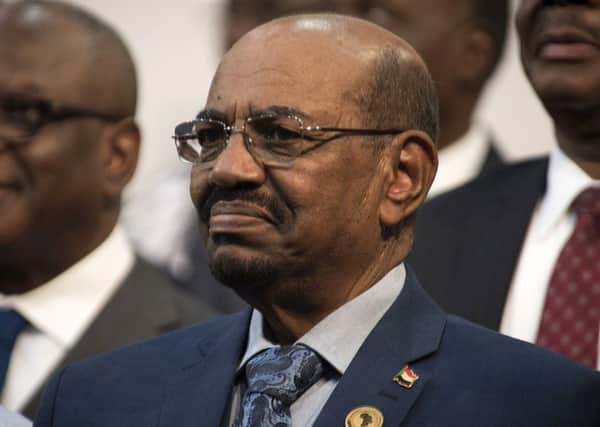Al-Bashir heading to Sudan after dodging arrest


In Geneva, UN Secretary-General Ban Ki-moon said the International Criminal Court’s authority must be respected.
A Pretoria court’s ruling that al-Bashir, who was attending an African Union summit, should be arrested came after he had left the country and in defiance of an earlier court order that he should remain in the country while judges deliberated on the matter.
Advertisement
Hide AdAdvertisement
Hide AdJudge Dunstan Mlambo criticised the South African government for failing to heed the instructions of the court. “It is of concern to this court that we issued orders and then things just happened in violation of those orders,” Mr Mlambo said.
International Criminal Court Deputy Prosecutor James Stewart said in The Hague, where the court is based, that “in our view it was very clear” that South Africa should have detained al-Bashir so he could have been brought to trial in The Hague.
“Their obligation was to arrest President al-Bashir,” Mr Stewart said.
“I think, however, what is important to remember is that we act really in the interest of victims,” he added. “The concern of the prosecutor is for the victims of dreadful atrocities and these victims are Africans.”
The International Criminal Court’s charges against al-Bashir stem from reported atrocities in the conflict in Sudan’s Darfur region in which 300,000 people were killed and 2 million displaced in the government’s campaign, according to United Nations figures.
South African officials have declined to comment, though William Mokhari, an attorney for the South African government, said African leaders at the summit in Johannesburg had immunity and there was no basis for arresting al-Bashir.
Leaders of the African Union are cautious about interfering in each other’s affairs and highlighting alleged human rights abuses on a continent with a history of conflict. Critics of the International Criminal Court also say it has unfairly targeted African leaders. But Stewart said most of the African cases were initiated by African governments themselves.
At one point, Mr Mokhari, the South African government lawyer, told the judges there was no risk of al-Bashir “disappearing” while he attended the summit.
Advertisement
Hide AdAdvertisement
Hide AdBut soon after he uttered those words, South African journalist Erika Gibson tweeted photographs of what she said was Sudan’s presidential jet taking off from a South African military base. Sudanese state media then said al-Bashir had left South Africa and that a news conference would be held at the Khartoum airport on his arrival.
Elise Keppler, international justice acting director for US-based Human Rights Watch, said if al-Bashir was indeed on the plane, it was a missed opportunity to bring him to justice.
“By allowing this shameful flight, the South African government has disregarded not only its international legal obligations, but its own courts,” she said in a statement.
Al-Bashir appeared in a group photo with other African heads of state on Sunday at the summit. The African Union had previously asked the ICC to stop proceedings against sitting presidents and said it will not compel any member states to arrest a leader on behalf of the court.